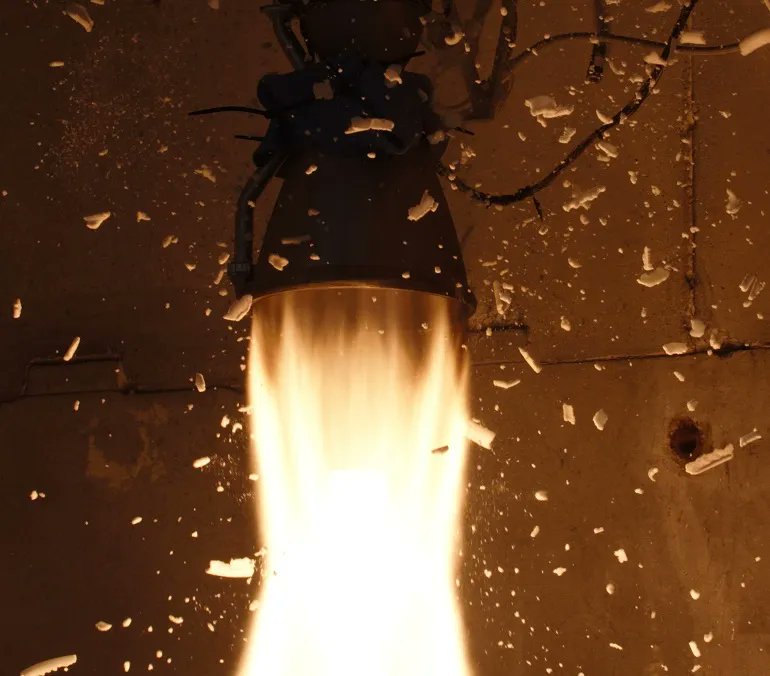Reusable rocket engines have become all the rage lately, even as NASA’s continually delayed Artemis I mission attempts to launch with non-reusable technology. Realistically the only way to significantly lower launch costs is to reuse the engines rather than build them from scratch every time. Which is why every fan of space exploration should rejoice that another small start-up company, RocketLab, has successfully retested a rocket that has flown in space.
SpaceX famously has flown several of its Raptor engines into space multiple times already, making headlines along the way. But it’s not the only company with ambitions for reusing its rockets. RocketLab, which makes a much smaller rocket called the Electron, has also been eyeing this milestone for a while now.
The company made headlines back in May when it made a spectacular show of catching its rocket stage out of the air with a helicopter. That’s certainly something that SpaceX has never done before – in fact, the company even had a hard time catching its fairings using a net on a boat. UT video describing RocketLab’s catch of its rocket engine that just underwent successful re-testing.
However, RocketLab’s helicopter catch was only the first step in a multi-stage process of getting to a reusable rocket. That first test catch eventually forced the helicopter to drop the rocket into the ocean, where it was scooped up by a ship. Sea water is corrosive and harmful to any metal that sits in it for too long.
Any space-faring system that touches it will have to be significantly refurbished, so if you’re planning on reusing a rocket, it’s probably better to leave it out of the drink. Why wouldn’t RocketLab just go for landing the rockets back on a pad like SpaceX does, then? The simple answer is a size difference. The Electron, which weighs in at 12 tons fully stacked, can only launch about 300 kg up into LEO, compared to about 17,000 lbs that a Falcon 9 can lift, even if it’s landing on a drone ship.
Rocket Lab’s Electron rocket rises from its New Zealand launch pad. Credit: Rocket Lab via Twitter These two rockets are in entirely different classes in terms of their power, and that size difference allows a Falcon 9 to carry enough fuel to land upright on a pad without comprising too much carrying capacity. On the other hand, carrying enough fuel to land upright on a pad would mean Electron wouldn’t have enough room for its payload.
However, an Electron only costs about $7. 4 million per launch, and that price is expected to fall as the rockets become reusable. The company took a step in that direction when it test-fired the rocket that was caught in May and then dumped in the ocean.
It underwent some refurbishment, as all returned rockets have to. But afterward, it passed all static fire tests with flying colors, including producing enough thrust to get into orbit and passing all of the marks of a newly built Rutherford engine, the power plant behind the Electron. This is all good news for the company and the private space industry at large.
Next up is completing a helicopter catch without having to drop it into the ocean and then moving on to reusing a rocket that has been to space. There’s plenty more for the company to do, but shortly, it looks like launch costs will be falling even further, thanks to even more reusable rockets. Learn More:RocketLab – Rocket Lab Successfully Completes First Test Fire of Reused Rutherford EngineUT – They Did It! Rocket Lab Uses Copter to Catch (and Release) a RocketUT – Rocket Lab Shows off its new Reusable Neutron Rocket, due for Launch in 2024UT – RocketLab Recovers a First-Stage Booster for the First Time: “Return to Sender” Lead Image:Rutherford engine that was caught out of the sky being tested successfully.
Credit – RocketLab The post Rocketlab Sent This Engine to Space and Then Retrieved it. A new Test Shows it’s Still Working Fine appeared first on Universe Today. .
From: universetoday
URL: https://www.universetoday.com/157444/rocketlab-sent-this-engine-to-space-and-then-retrieved-it-a-new-test-shows-its-still-working-fine/



